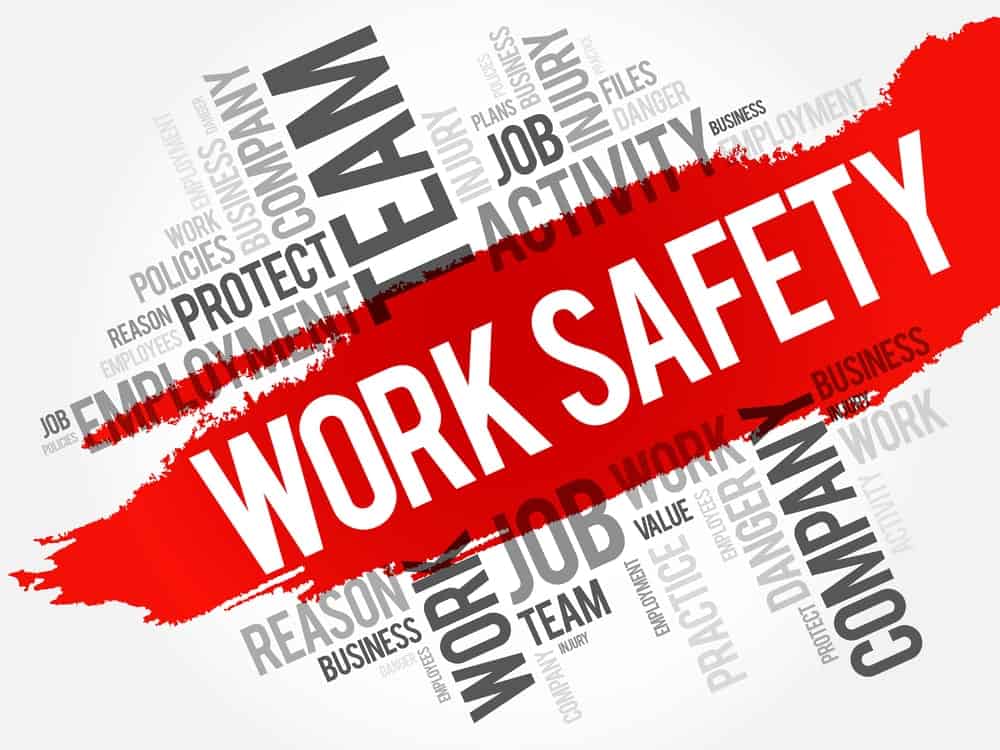
You may have heard of “wrongful dismissal” in legal cases concerning employment but there is another concept that is central to employment laws in B.C.
This is the concept of “prohibited action”, which is addressed in B.C.’s Workers Compensation Act.
Your employer cannot legally fire you for raising a safety issue at work. All workers in B.C. have the right to file a “prohibited action” claim with WorkSafeBC if employers or unions retaliate against them or take any action that negatively impacts them for exercising their rights under B.C.’s health and safety laws.
If successful, an employee can receive compensation or, in some cases, get their job back. Awards from WorkSafeBC may be even higher than a court-ordered award under the wrongful dismissal laws here.
If you are in that situation and want to file a prohibited action complaint against your employer, it may help to know a little more about the protections afforded to you under the employment laws here — and what the difference is between wrongful dismissal and prohibited action.
What is wrongful dismissal?
Wrongful dismissal is when an employer dismisses an employee without providing sufficient notice — or severance pay in lieu of notice.
An employer in B.C. can fire an employee for no reason providing their obligations under the Employment Standards Act are met. The employment contract signed by the employee can make direct reference to the Act or state another reasonable means of calculating notice.
Failure to follow these regulations can result in an employee filing a wrongful dismissal claim. Even if an employer meets the obligations under the Act, common law may be applied and entitle an employee to more than these requirements.
If the employer fires an employee with just cause, it means that the employee has acted in a way that makes the employment relationship untenable and immediately ends the contract. In such cases, reasonable notice is not required.
However, sometimes just cause is used by employers as an excuse to let someone go — and this could also result in a wrongful dismissal claim.
What is a “prohibited action”?
Prohibited action is different from wrongful dismissal. Rather than the Employment Standards Act, we need to refer to the Workers Compensation Act.
A “prohibited action” occurs when an employer takes an action that negatively impacts a worker who makes a complaint under the Act.
The prohibited action might be a suspension, a demotion or dismissal. However, it could also involve less severe actions like not getting a promotion or any kind of disciplinary approach, such as providing less favourable working conditions. There are some similarities with constructive dismissal in this regard.
As an employee, you’re protected from retaliatory actions if you’re doing anything that’s safety-related.
You can exercise your rights concerning occupational health and safety rules by flagging a safety concern in the workplace or refusing to perform a particular task. You can also provide information about the health and safety environment or testify against an employer about a safety-related issue without fear of retaliation.
If, however, the employer takes action against you for filing a worker’s compensation claim with no safety-related issue involved, a prohibited action complaint cannot be filed.
What are the steps for a prohibited action complaint?
To file a prohibited action complaint, you may need legal assistance as there are several necessary steps to navigate to give yourself the best chance of success.
Firstly, you need to make sure that you file your complaint with WorkSafeBC within one year of the incident in question.
If you belong to a union, you’ll need to assess whether it’s better to file a grievance with your union or company to WorkSafeBC. You’re prohibited from doing both.
From there, if you have a valid claim and decide to proceed with a WorkSafeBC complaint, you’ll need to do the following:
- Fill in a form, answering everything and describing what happened in as much detail as possible.
- Demonstrate how your employer did something that affected you negatively at work.
- Describe how you were doing some kind of safety-related activity.
- Demonstrate the connection between the prohibited action and the health and safety activity.
The case usually hinges on whether you can demonstrate the connection between the prohibited action and the health and safety activity i.e., that you were retaliated against by your employer.
This is where employees often need the experience of an employment lawyer as it can be difficult to know exactly what to say and how to shape the chain of events that led to the employer’s action.
Most important is the timing of the action taken against you. For instance, if you were demoted within days of informing your employer of a safety hazard at work, this would usually be seen as a direct connection between the two events.
How to maximize a prohibited action settlement
Prohibited action settlements can be significant but you stand a better chance of maximizing your compensation if you take certain steps after the action is taken against you by your employer.
It’s best to do the following:
INCLUDE STRONG SUPPORTING EVIDENCE WITH YOUR COMPLAINT
Your complaint should be backed up with as much evidence as possible, including emails, pictures, and witness statements.
PREPARE FOR MEDIATION
A mediator may be asked to meet with you and the employer to try to arrange a settlement. You should be prepared for this by understanding how much your claim is worth in terms of the wages you lost and what else you can reasonably expect…which brings us to the next point.
OBTAIN LEGAL ADVICE
If you talk to a lawyer as soon as possible after you have experienced a prohibited action, you will be well-briefed about what your next actions should be. If you’ve been dismissed and you don’t expect to be able to find another job soon, you have a better chance of higher compensation if you work with an experienced employment lawyer to prepare your case, represent you in mediation, and represent you at your hearing(s) if necessary.
if you talk to a lawyer as soon as possible after you have experienced a prohibited action, you will be well-briefed about what your next actions should be. If you’ve been dismissed and you don’t expect to be able to find another job soon, you have a better chance of higher compensation if you work with an experienced employment lawyer to prepare your case, represent you in mediation, and represent you at your hearing(s) if necessary.
Illegal termination clauses in B.C. employment contracts
Even if you don’t necessarily have a valid prohibited action case, your employer may have acted illegally in other ways.
For instance, an employer in B.C. must not limit your severance pay for making a complaint or refusing to do a task that puts you in an unsafe situation. Full, common-law severance pay is a basic right and if such a clause (or any other unfairly restrictive termination clause) is inserted into your employment contract, it may be illegal.
You should speak to an employment lawyer as soon as possible if this is the case.
Do you have a prohibited action case in BC?
If you think that you may have a prohibited action case, contact a Taylor Janis employment lawyer as soon as possible.
We can advise you of your options during a confidential telephone or video consultation.

Our main hub for British Columbia is located in the heart of Vancouver. We also have a Kamloops Office for interior residents. That said, we serve the entire province of BC. We have the infrastructure to work with any of our clients virtually — even the furthest regions of British Columbia.
Call (604) 423-2646 [toll free 1-877-402-1002] to get routed to the best representative to serve you or contact us online for general inquiries.
We also have a dedicated intake form to help you get the ball rolling. Our intake team will review your specific case and advise you on the next steps to take as well as what to expect moving forward.
Our offices are generally open 8:30 a.m.—5:00 p.m., Mon—Fri.


Tanya Maas
WORKPLACE LAWYER
Tanya has extensive experience in issues relating to wrongful dismissal, notice periods, human rights and workplace investigations. She believes that clients deserve relentless protection of their legal interests within legal and ethical bounds and an aggressive approach to litigation.
PRIVACY NOTICE: Any information you provide to our office — whether your personal information or employment/employer details — will be treated as strictly confidential and will not be disclosed to your employer or to any other third party. So, please be reassured that you can talk openly to our capable Intake Paralegals worry free. Fill out an Online Inquiry or call us now, your information will be in safe and helping hands.
The Legal Review Process by Taylor Janis Workplace Law
- Taylor Janis strives for high-quality, legally verified content.
- Content is meticulously researched and reviewed by our legal writers/proofers.
- Details are sourced from trusted legal sources like the Employment Standards Code.
- Each article is edited for accuracy, clarity, and relevance.
- If you find any incorrect information or discrepancies in legal facts, we kindly ask that you contact us with a correction to ensure accuracy.


